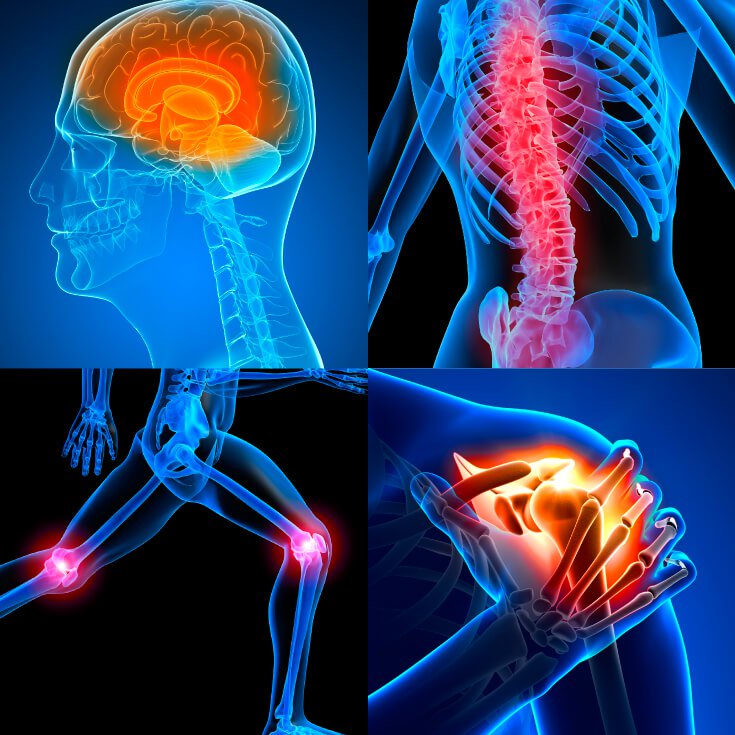New protocol to reduce inflammation.
Source: UT Southwestern Medical Center Mar 25, 2019 6 years, 10 months, 2 weeks, 6 days, 13 hours, 59 minutes ago
UT Southwestern researchers have identified two proteins that act as gatekeepers to dampen a potentially life-threatening immune response to chronic infection.

The proteins -- the transcription factors SIX1 and SIX2 -- activate cellular pathways required for fetal development and later switch to a new role in which they repress these pathways in adult immune system cells.
"This work provides insight into the molecular components required to limit tissue damage associated with uncontrolled inflammation, such as in septic shock, and reveals how cancer cells may suppress the innate immune system during tumor genesis," said Dr. Neal Alto, Professor of Microbiology at UT Southwestern and corresponding author of the study in an interview with Thailand Medical News.
Transcription factors are proteins that bind to special regions of DNA to turn genes on (activate them) or off (repress them). "One of the surprising findings was that a transcription activator that is essential for the development of tissues and organs has been repurposed as a transcriptional repressor in the immune system. While transcription factors can be used differently in various stages of life, a switch from a transcriptional activator in the fetus to a suppressor in adult immune cells is infrequent," said Dr. Alto, who holds the Lorraine Sulkin Schein Endowed Distinguished Professorship in Microbial Pathogenesis. Dr. Alto is also a UT Southwestern Presidential Scholar and a Rita C. and William P. Clements, Jr. Scholar in Medical Research.
He added that the work provides a new pathway for controlling inflammation, which could be important for developing new drugs. It also might explain
how cancer cells develop chemotherapy resistance.
The researchers found that the two proteins showed inhibitory activities when bound to genes involved in inflammation. Specifically, SIX1 and SIX2 appeared to dampen the body's immune response to prevent damage associated with a potentially life-threatening condition called a cytokine storm, which can occur in chronic inflammatory conditions. "A cytokine storm can occur when the body's immune cells and activators (cytokines) show an overresponse to a health threat such as the flu," he explained.
An experiment with transgenic mice found that expression of SIX1 in adulthood conferred near-complete recovery following exposure to a toxin released by gram-negative bacteria that can set off a cytokine storm. The two SIX proteins seem to dampen the response of the so-called noncanonical NF-κB pathway, a signaling cascade that is instrumental in the development of the lymph organs, the maturation of the immune system's antibody-producing B cells, and the development of bone cells. The same pathway is involved in the body's immune defense in adulthood.
The studies, which initially focused on bacteria and viruses, also shed light on mechanisms of cancer cell resistance to drug treatment, Dr. Alto said.
In one series of experiments, the team found that cancer cells derived from patients with treatment-resistant non-small cell lung cancer expressed high levels of the SIX1 and SIX2 proteins. The scientists used the CRISPR-Cas9 gene-editing technology to remove the genes that produce those two proteins, making the cancer cells dramatically more sensitive to a promising drug class called SMAC mimetics.
&
quot;In summary, we have established that SIX family transcription factors function as immunological gatekeepers, regulating the activity of inflammatory genes in response to noncanonical NF-κB pathway activation," he said. "These findings indicate that disruption of this pathway could have important consequences for the pathogenesis of human disease, including cancer."
Reference:
Zixu Liu, Katrina B. Mar, Natasha W. Hanners, Sofya S. Perelman, Mohammed Kanchwala, Chao Xing, John W. Schoggins, Neal M. Alto. A NIK–SIX signalling axis controls inflammation by targeted silencing of non-canonical NF-κB.
Nature, 2019; DOI:
10.1038/s41586-019-1041-6
